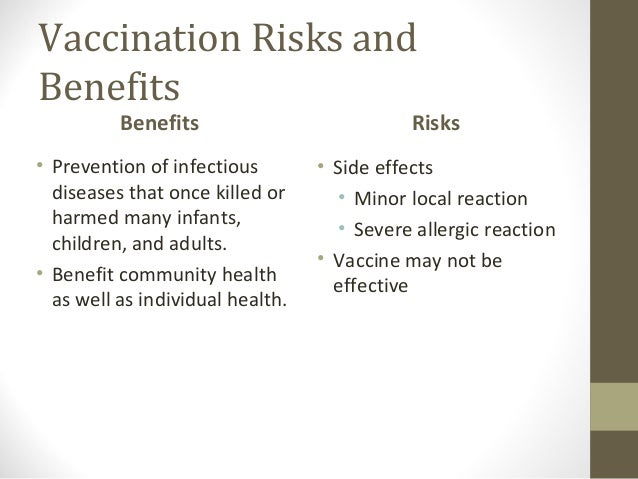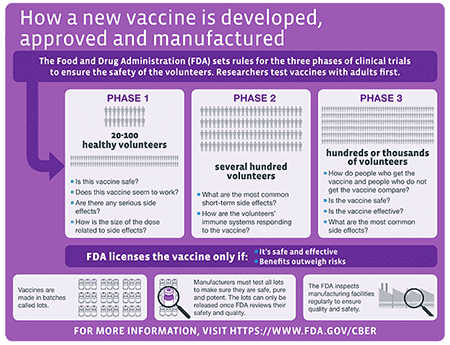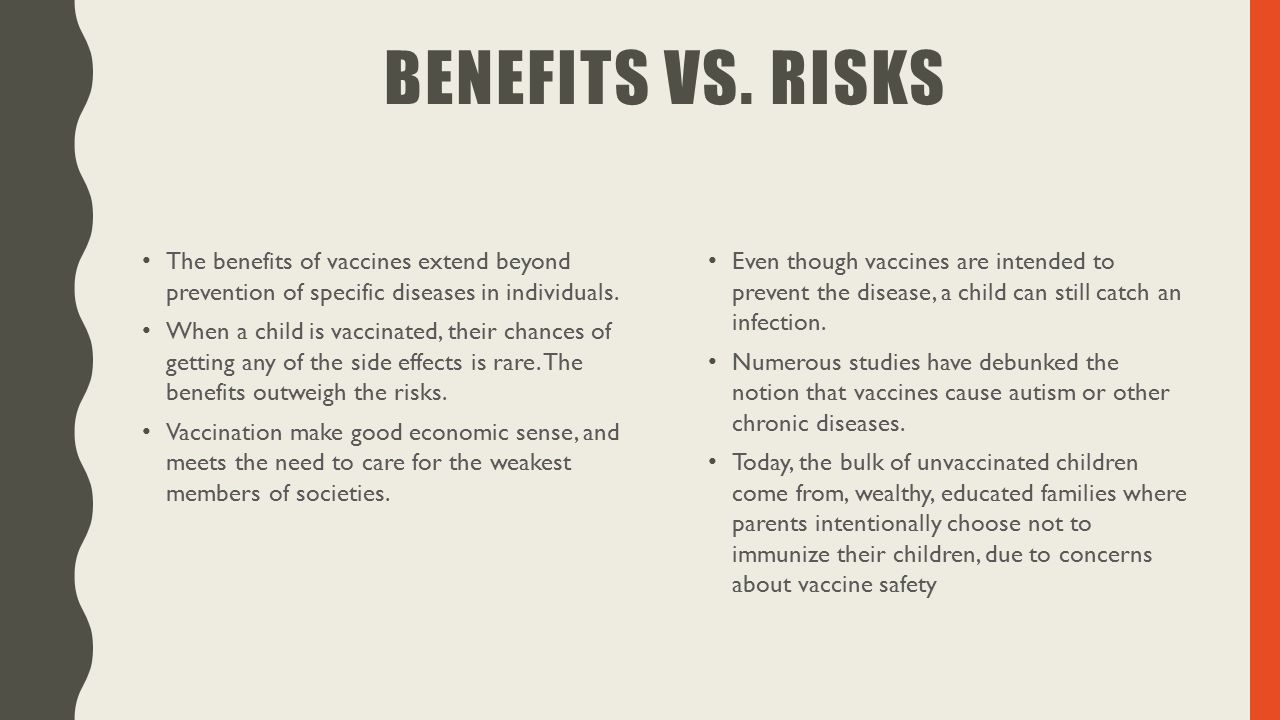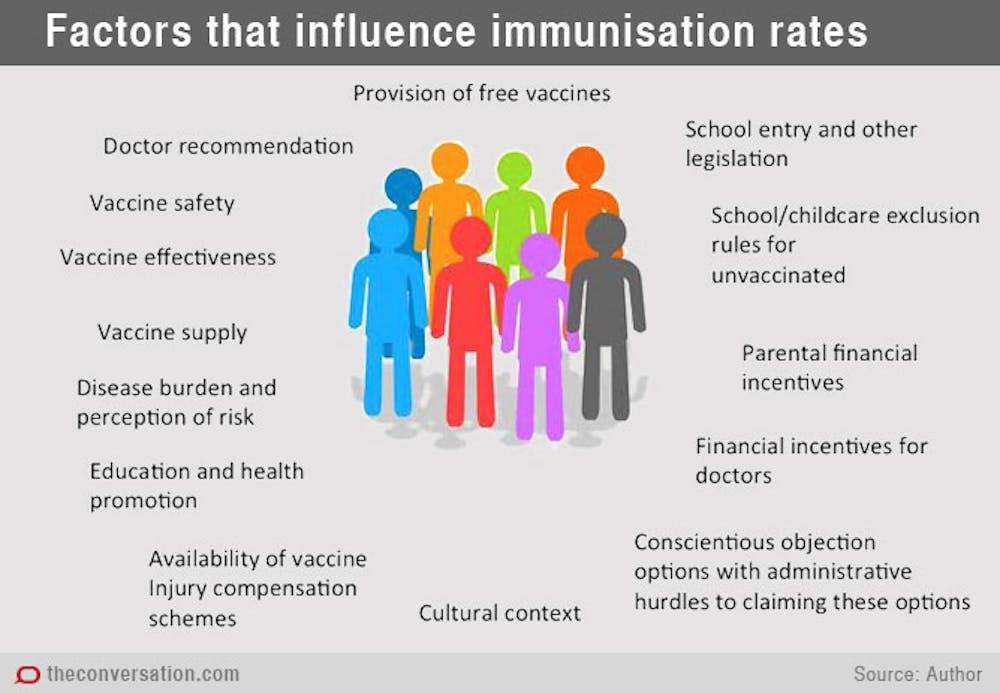Benefits And Risks Of Vaccinations

Therefore vaccinations vastly help in acquiring artificial immunity.
Benefits and risks of vaccinations. This is not only risky but also potentially deadly. Some of these diseases can cause serious long term health problems or death. Vaccines can be given to children as young as 6 months of age. Again vaccines are not 100 safe or risk free.
One of the greatest benefits of vaccinations is that it has helped to lower the rate of mortality by increasing the immunity of the body. The risks and benefits of vaccination. For example people who are ill or have a weakened immune system. Vaccinations are beneficial in preventing epidemic from spread.
They are safe for pregnant women as well as the elderly. Vaccines protect us by preventing the disease from occurring in the first place. Vaccines protect against diseases that can harm your child. All medications and vaccines have potential risks that must be carefully weighed against the benefits that medications and vaccines offer to prevent illness.
Most vaccines have some common mild side effects which might include depending on the vaccine. Vaccinations work by getting your body s defences to work against parts or a version of a disease causing bacteria or virus and symptoms like redness or a mild fever are part of your body s reaction to the invading agent. Herd immunity vaccinations are. To look at vaccine risks and benefits we have to start at the beginning.
It is likely for folks to get better educated about vaccines including getting a good understanding of both their benefits and risks. The diseases that vaccines prevent can be deadly and these shots work with the body s natural defense to develop immunity to these deadly diseases. Vaccination is one of the most successful public health interventions in reducing disease spread preventing complications and even deaths from vaccine preventable diseases. If enough people are vaccinated it s harder for the disease to spread to those people who cannot have vaccines.
Vaccines also help prevent disabilities such as blindness and paralysis that can be caused by disease. There are broadly two stages of vaccine research pre and post licensure or the period before and after a vaccine. How do vaccines work. Immunizations or vaccines as they re also known safely and effectively use a small amount of a weakened or killed virus or bacteria or bits of lab made protein that imitate the virus in order to.

















